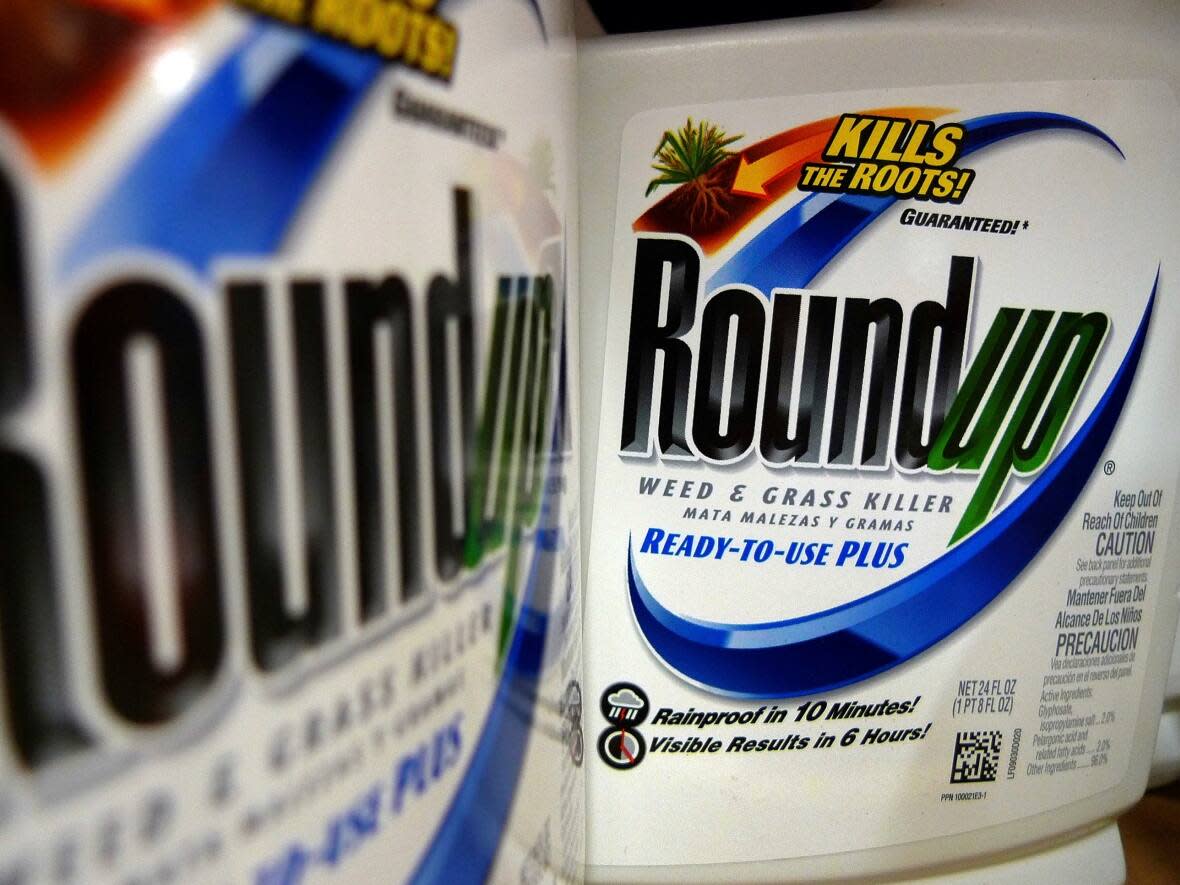Stores selling banned herbicide glyphosate will be fined, says Montreal mayor

Montreal Mayor Valérie Plante says retail outlets caught selling the weed killer glyphosate and other banned pesticides will face stiff fines, after Radio-Canada revealed seven Rona outlets in Montreal still had the herbicide Roundup on its shelves.
As of Jan. 1, 2022, the sale and domestic use of 39 pesticides, for a total of more than 100 separate products, have been illegal in the city of Montreal.
Despite that ban, Radio-Canada discovered at least one of the prohibited products is easy to find.
Aside from the Rona outlets, a Canadian Tire store in Saint-Léonard was also selling Roundup, although it pulled it from its shelves after being contacted by Radio-Canada for comment.
"This is unacceptable," said Mayor Valérie Plante Monday. "It's a toxic product that has no place on our shelves."
The use of glyphosates to suppress weeds in agricultural settings — but also on lawns and in gardens and parks — continues to be highly controversial.
The manufactuer of Roundup, Bayer, defends its use as safe. However, in 2015 the World Health Organization's International Agency for Research on Cancer (IARC) concluded that glyphosate was probably carcinogenic to humans.
No inspections yet
The fines for Montreal retail outlets caught selling the banned products run from $1,250 to $2,000, with fines up to $4,000 for a second offence.
However, city spokesperson Mélanie Dallaire told Radio-Canada inspectors have not yet begun to make the rounds of hardware stores to ensure the pesticides are off the shelves.
"It's been nearly three months since the law banning the sale of pesticides like glyphosate has been in effect in Montreal. How is it that the administration has carried out no checks and no inspections of businesses?" asked Coun. Stéphanie Valenzuela, who represents Côte-des-Neiges–Notre-Dame-de-Grâce for opposition Ensemble Montréal.
"This is greenwashing on the part of Projet Montréal," she told Radio-Canada in an email. "The administration makes nice commitments, but then is unable to implement [the bylaw] and do the necessary follow-up."
The environmental group Greenpeace also expressed disappointment that the bylaw is not yet being enforced.
''What is the point of fines,'' Greenpeace tweeted, ''... if the city doesn't give out any?''
The city has been focusing on communicating with pesticide companies and businesses about the new bylaw, said Dallaire.
"All of the businesses which have to abide by the bylaw will be visited over the next few months, at which point measures can be taken to ensure they are complying," she said.
Aside from glyphosates, Montreal has also banned the use of chlorpyrifos, a pesticide used to kill insects and worms, and certain neonicotinoids.
Exposure to chlorpyrifos has been show to have developmental effects on fetuses and young children, even in low doses. The use of neonicotinoids has been linked to the collapse of honey bee colonies and the declining number of insect-eating birds.
The pesticide products banned in Montreal continue to be available in many other parts of the province, although the province's third-largest city, Laval, banned glyphosate and neonicotinoids for domestic use last year.


